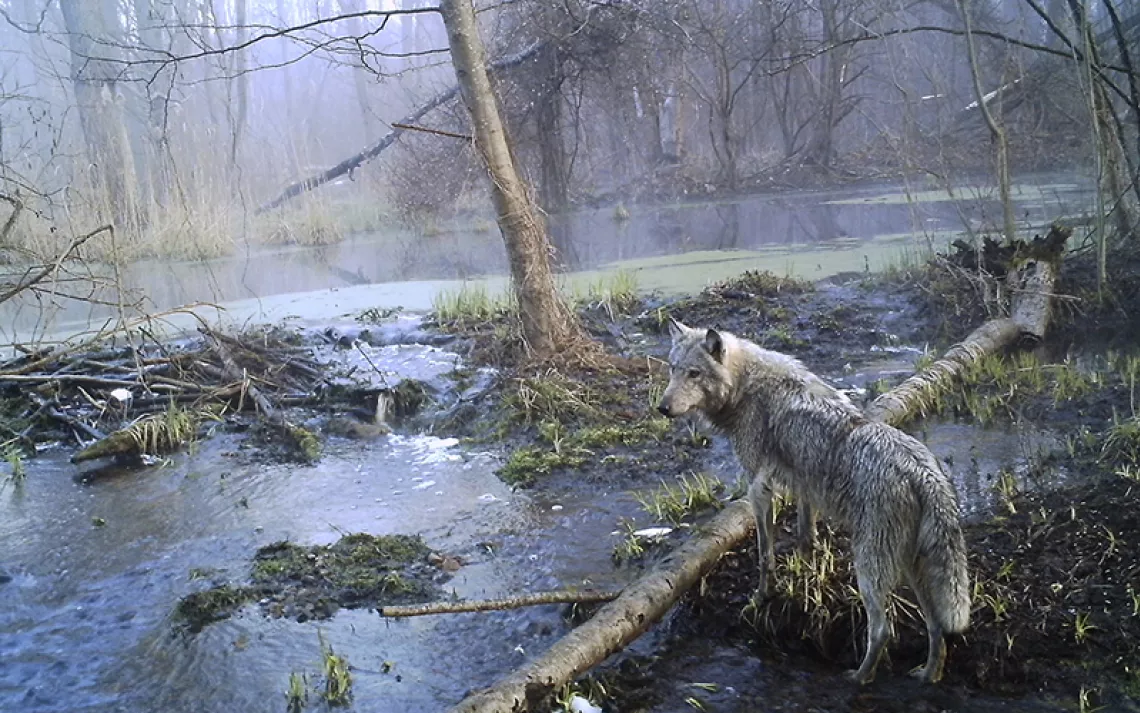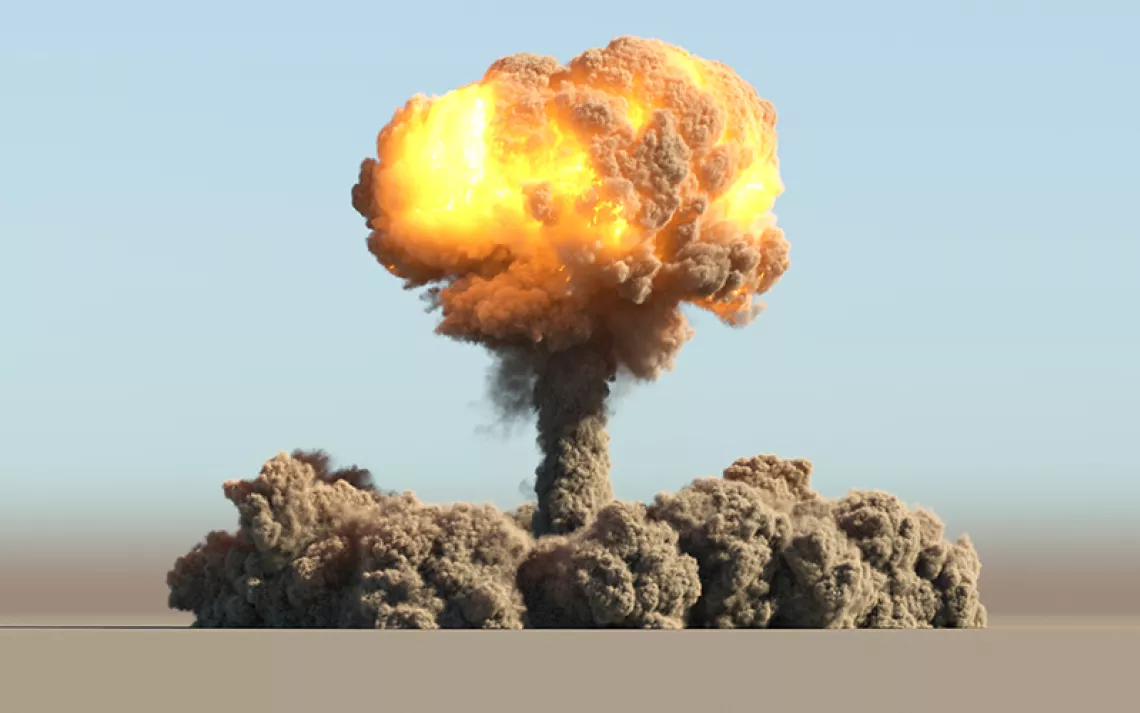Radioactive Waste—Rolling Through Your Town?
That truck next to you on the highway may contain “the most radioactively hazardous materials on Earth”

Photo by moorsky/iStock
Trucks full of liquid high-level radioactive waste may soon be rolling down interstate highways from Canada to South Carolina—unless they're stopped by a lawsuit that the Sierra Club and six other environmental organizations have filed.
The Department of Energy plans 100 to 150 shipments of more than 6,000 gallons of waste from the Fissile Solution Storage Tank in Chalk River, Ontario, to the DOE’s Savannah River Site in Aiken, South Carolina. The most direct route would pass through New York, Pennsylvania, Virginia and North Carolina to South Carolina. Alternate routes might take the shipments through Michigan, Ohio, West Virginia, Virginia (or Kentucky), and North Carolina (or Tennessee).
The DOE agreed to take the waste from Canada as part of an initiative to return to the United States radioactive materials that could be used for weapons. The suit argues that wastes from the production of medical radioisotopes are “acknowledged to be among the most radioactively hazardous materials on Earth.” It calls for an environmental impact statement that would analyze the hazards of transporting them, including “leakage of the liquid contents due to sabotage, accident, or malfunction or from the emanation of penetrating gamma and neutron radiation from the cargo during transportation due to accidental criticality or inadequacies in shielding.” The suit comes after nearly four years of requests from environmentalists for a study of the shipments' environmental impacts.
No liquid high-level radioactive waste has ever been shipped on public roads in the United States. Plaintiffs argue that carrying out these shipments without an environmental impact statement would violate both the National Environmental Policy Act and the Atomic Energy Act and “cause serious and irretrievable procedural injury, if not actual personal physical injury and property damage, to people living along the route in two countries.” Critics argue that the wastes could be “downblended” at Chalk River (so that they are no longer usable in weapons), solidified, and safely stored there.
Three members of the Atlantic (New York State) chapter of the Sierra Club are named as individuals who could be harmed by transport of these wastes near their homes. Sierra Club members along the potential routes have pressed for an EIS by signing letters and petitions, holding press conferences, and talking with elected officials. The South Carolina Chapter, the Wenoca Group (western North Carolina), and the Atlantic Chapter have all played active roles in drawing public attention to the shipments.
“As you know, the [western North Carolina] economy is heavily tied to our local food and beverage production, and the status of the mountains as a place for health,” wrote protesting organizations in a January 11 letter to North Carolina governor Roy Cooper. “A nuclear accident in this area could decimate the economy based on health and visitors seeking outdoor recreation.”
Joining the Sierra Club in the suit are Beyond Nuclear, the Nuclear Information and Resource Service, Savannah River Site Watch, Citizens for Alternatives to Chemical Contamination, Lone Tree Council, and Environmentalists, Inc. After the suit was filed, the Department of Energy agreed to put shipments on hold until at least February 17. A judge heard oral arguments in the U.S. District Court for the District of Columbia on January 18.
 The Magazine of The Sierra Club
The Magazine of The Sierra Club



